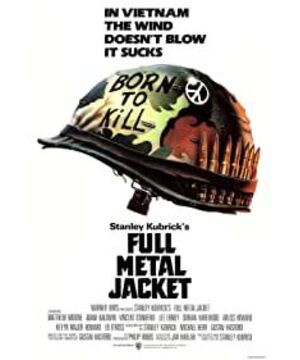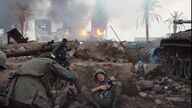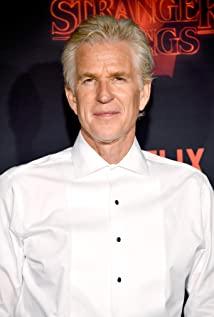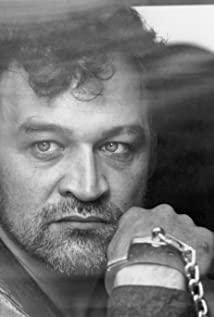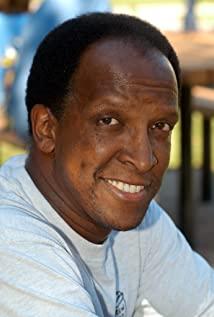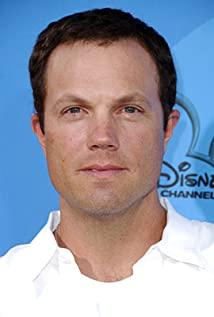refers to the rifle bullet in military technical terms. It is a field ammunition for marines. It is a bullet design in which the outer layer of the lead bullet is wrapped with a copper shell to ensure that the bullet enters the gun more smoothly Measured by the Geneva Convention, the all-metal shell is less harmful to humans than lead bullets. (Other bullet types include "lead round head", "half punching", etc.)
-------Simply popular science ends here-------
Next, I'm going to talk about war, which seems to be far away from us. It’s a bit far-flung theme, but fortunately, there have been so many movies dedicated to depicting it to us completely cruelly and ruthlessly, so I also put Kubrick’s "Doctor Strange Love", "Full Metal Case", and " After watching "Road to Glory", I also briefly compared these three films that are all war-themed by the way.
Compared with the high-powered humanity and glorious blockbuster "Road to Glory" that discusses in the trenches, I personally prefer "Doctor Strange Love", which uses black humor to tear the absurdity of nuclear war to pieces. Artistic treatment is a higher level. However, after recalling the first feeling of watching the movie, I found that I would like to write this lesser-known "Full Metal Shell" because almost everyone in this Vietnam War-themed film Can understand (not hypocritical, literary, purely vernacular).
It can be said that, unlike the dark mocking "Doctor Strange Love", nor the "Road to Glory" with the ring of Jesus above his head, Kubrick basically uses a "no filter" method to present this film (this filter is not a camera Equipment filters, you must know that Director K loves all kinds of filters), and it is this direct, frank, and naked realism that destined this film to be popular, and its speculation is also very clear:
"Individual vs. Country" "
"Humanity vs. Machine"
"Goodness vs. Evil"
1. When you lose your humanity, you have been trained as a machine without knowing it.
Accompanying Johnny Wright’s Country West Folk Songs
The officer who speaks like a machine gun, the speed and acidity of his speech can directly shock the recruits, but personally, I still like this officer (Lee Ermey). It is said that he was invited to be a movie in the beginning. Consultant, as a result, Director K directly asked him to replace the original actor. I said it’s no wonder this officer is so old and natural. He turned out to be a former Marine Corps drill coach, a real Vietnamese veteran.
So that group of wimps: Joker (Joker), Pyle (Fatty Pyle), Cowboy, photographer "Oarsman", under the cruel training of the wicked officer, gradually really learned to show off the fierce light, and even murder. From the beginning of Joker's false kindness (inspiring recruits to collectively bully Pyle with towel soap), Kubrick has already laid the groundwork for a complete outbreak, and this is also the beginning of the change in Joker's "goodness". Until the first drama climax of Pyle's mad murder and suicide, the whole film can almost be clearly divided into two. If the two styles suddenly change, the first half is still a cult comedy of horrible fun (the theaters laughed loudly at the time) , I can easily see it).
In the first half, Fatty Pyle was simply the role of a comedian. The first time I saw Kubrick, he was able to play with the humorous tone of his friends, but still felt that the director's intention to design the role of Fatty Pyle was still very heavy. If you don’t believe me, Pyle has been trained to be able to play by being a “baby” who is almost incapable of taking care of himself in life (recalling those scenes where he was helped to button buttons, stolen donuts, sucked his fingers, took off his pants, etc.). The sharpshooter on the battlefield, the national army, its real purpose is to turn people into tools and obedient killing machines. Who cares if you can’t resist the pressure and instantly twist and go crazy? !
2. What about good and evil at the moment the gun is raised and pulled down?
If I remember correctly, it was caused by
After Fatty Pyle committed suicide, it was almost Joker's play after get off work. He was a representative of independent thinking, liberalism, and atheism from the very beginning (glasses are a strong symbol of "knowledge and culture", and there is also a scene of arguing with an officer that the Virgin Mary believes in God or not). He’s enlightened, but he is also an individual full of contradictions, especially when the colonel officer asked whether he was a "Born to kill" (helmet) or a peace badge, was he hypocritical? Or is it the original sin of human nature itself? Anyway, he chose a war correspondent instead of going to the front line. Was he cowardly? In other words, how many people are really not afraid of death in the face of war? What's more, he just chooses according to his own human nature that he doesn't want to kill.
Until the scene where the soldiers were smashed by the snipers, Kubrick really did not evade you to face the blood of the war. I probably counted the number of shots fired by the snipers, and the camera swept back and forth on the person who was shot. After at least 6 or 7 rounds, single shots and bursts, tmd is really terrible. The friend next to me blindfolded his eyes, but I admire that K director used these rounds to easily confuse us. The default justice party sentiment has been pushed to the most irritating point, everyone can't wait to smash the sniper into ten thousand pieces immediately (at this time, Joker's killing intent is already tens of thousands of times stronger than our audience!), however, the brushstroke turned and faced The female North Vietnamese Army sniper dying to say "shoot me, shoot me" (the irony is that these well-trained American maidens were turned into scum by a woman, the director is so dark), Joker hesitated.
At this time, Joker’s "goodness" was swaying. I believe that at the beginning of Qichu, Joker said that he could not keep her here. He still wanted to take her away to treat her or let her go, but Kubrick said that The paragraph stretches very long, very long, leaving a lot of no dialogue space for the audience to speculate about Joker's inner changes, until the gun is depressed and the decision to kill is made. You still can’t rule out the possibility that Joker wanted to help her get rid of the pain earlier (goodwill), but in the end, the facial expression of Director K staying on Joker made me think that it was really killing people, and revenge for teammates was a pure thought. Whether it’s killing or being unknowingly demonized by war, it’s already "evil".
However, this kind of "good" and "evil" is inherently difficult to define in a war, and it will also lose the criterion of "right" and "wrong". After all, countries are selfish and selfish, and of course they seem to stand in their respective positions. Confidently. On the contrary, only the grassroots can see the truth. Just like the interview with the soldiers in the movie, Vietnam does not need the United States to help them gain any freedom. During the war, why should a country think so self-righteously that "We Are Right" ? Why do you think you are a messenger of justice to walk the way for heaven?
The 12-year Vietnam War is only a short section in the long history of human warfare, and Kubrick’s perspective is very broad and broad. Before such a war that destroys humanity, people are fragile and small. Soldiers and civilians are always the most innocent. Fortunately, Joker In the end, at least live, and firmly proved the tenacious vitality of mankind in the flames of war.
Finally, returning to the popular science at the beginning of the article, Full Metal Jacket itself is self-contradictory. To kill people, it must uphold the humanitarianism to minimize the lethality of weapons. It is both a protection and an attack. It is a duality to the root of mankind. Do you think that Kubrick is really just taking a bullet as the name of the movie?
-------------------------------------------
BTW, the order of appearance of the music inside Because there is no film source in hand, I haven't checked it very rigorously. I wrote it only from memory. Please pat if you make a mistake. . .
View more about Full Metal Jacket reviews


